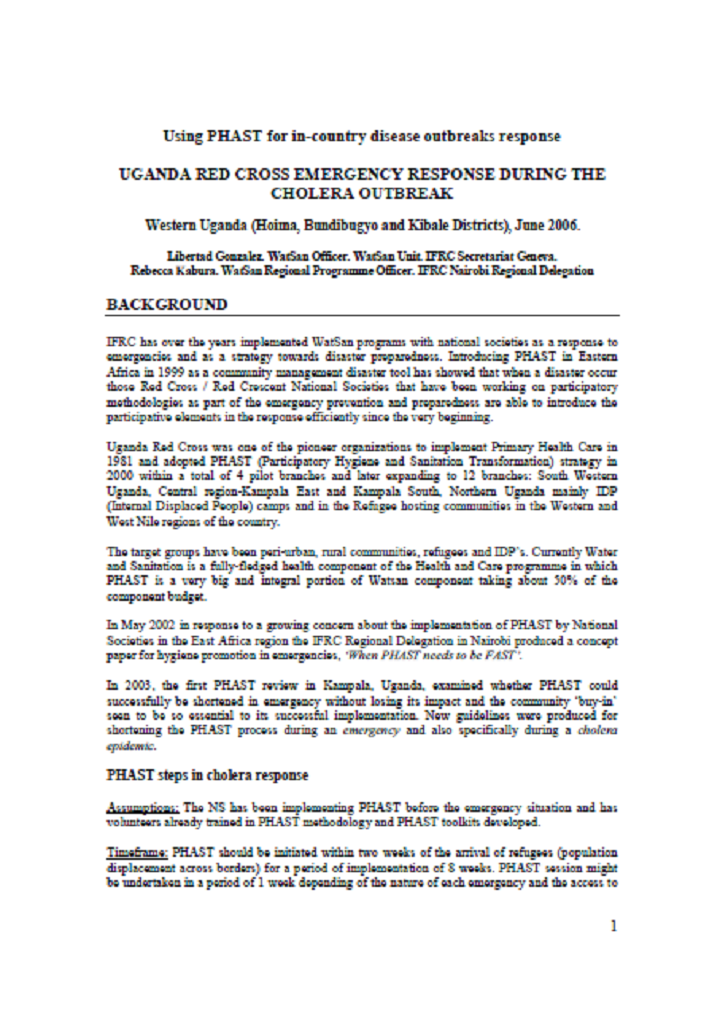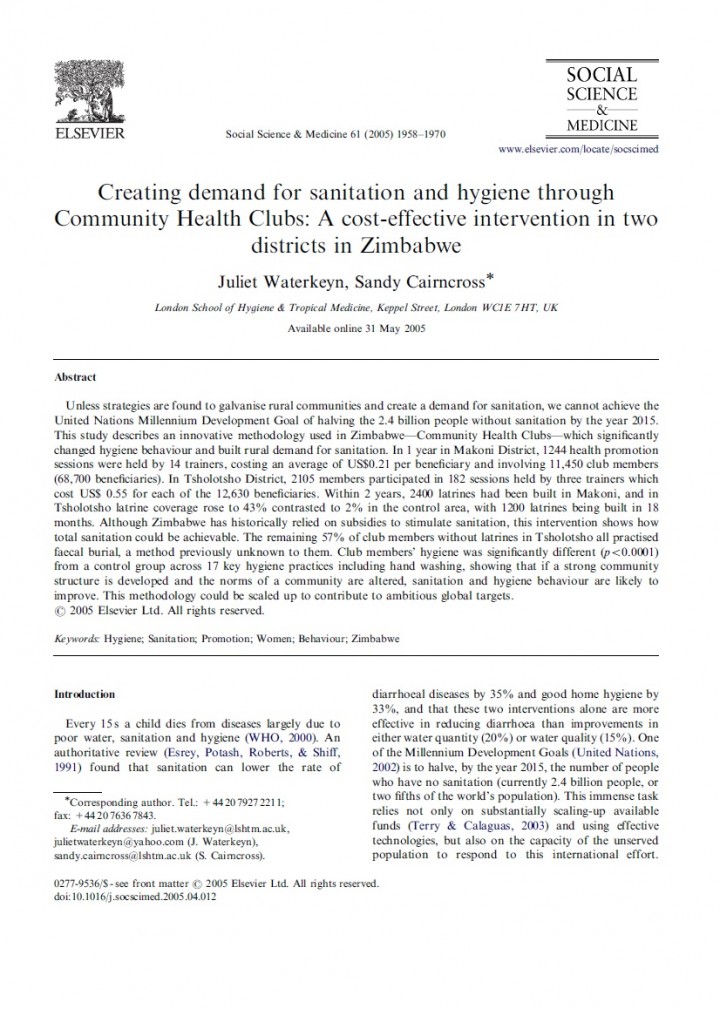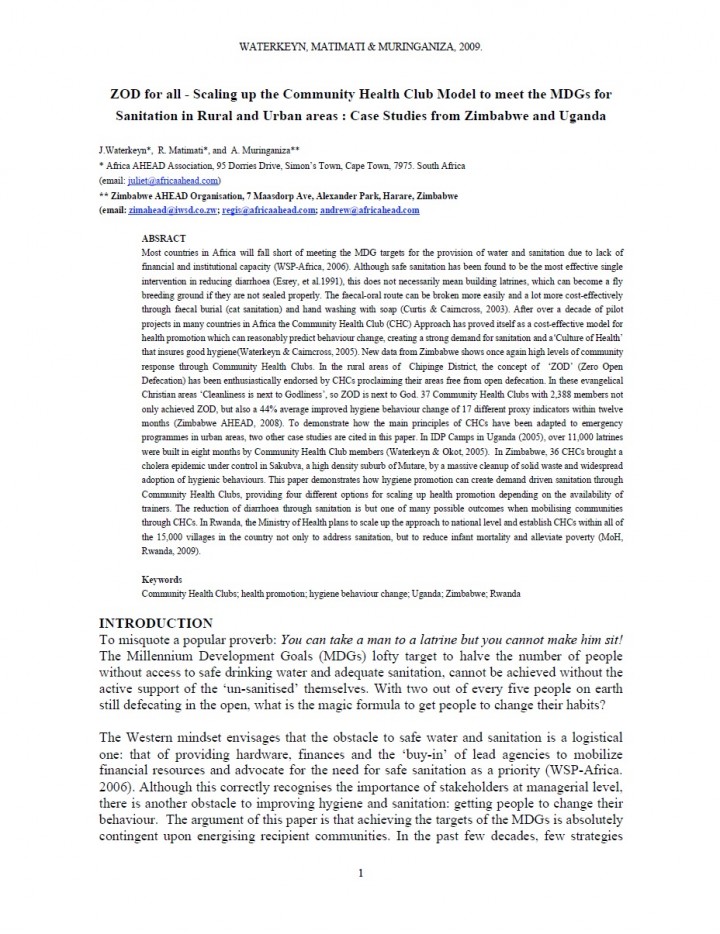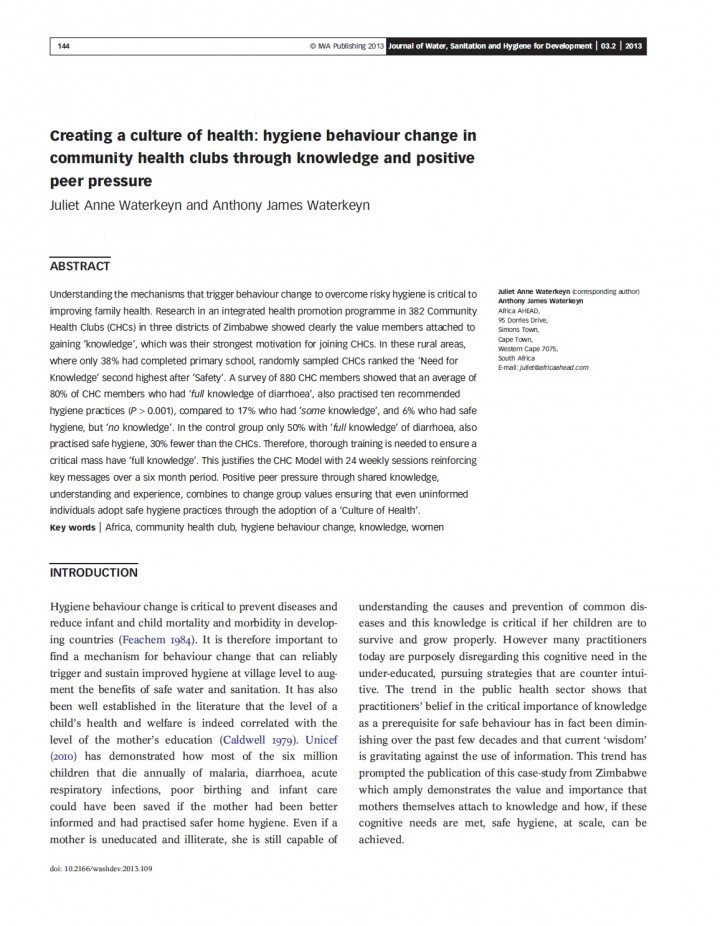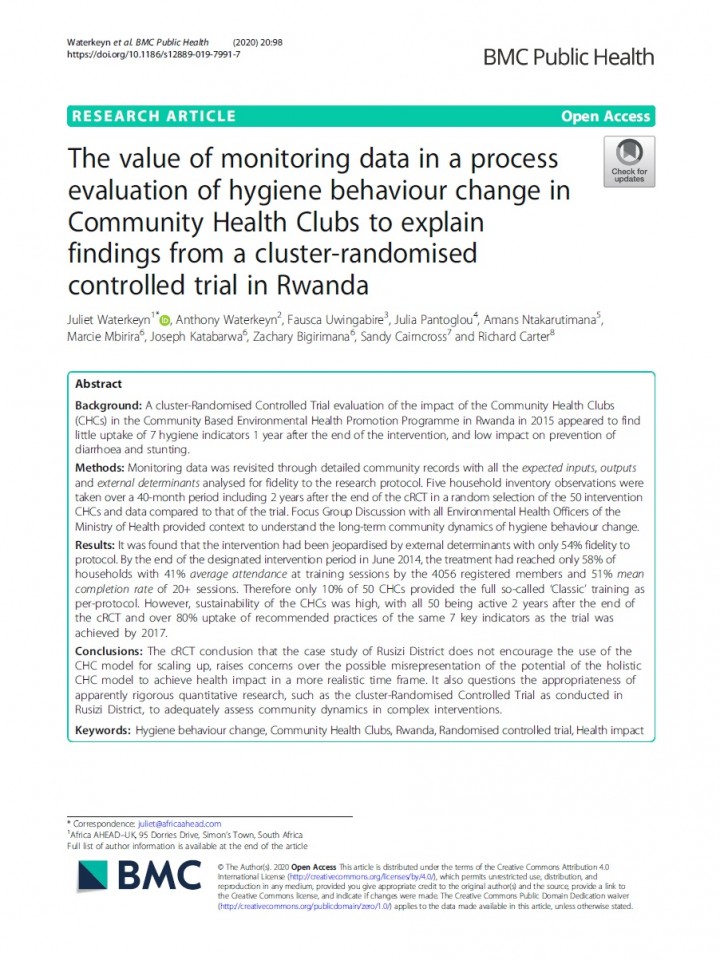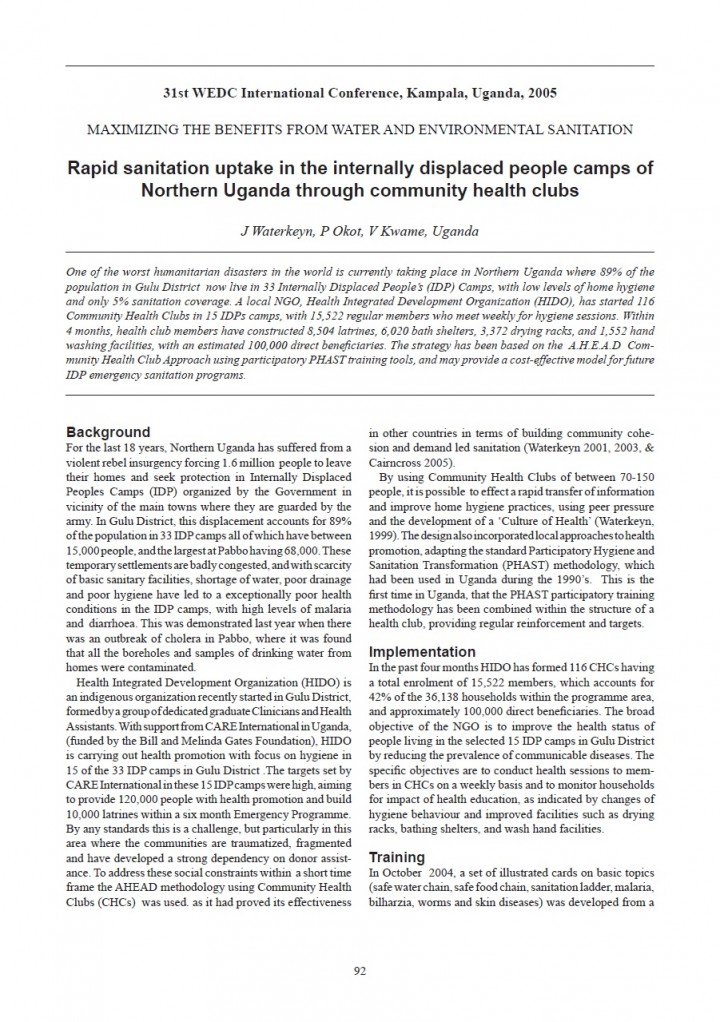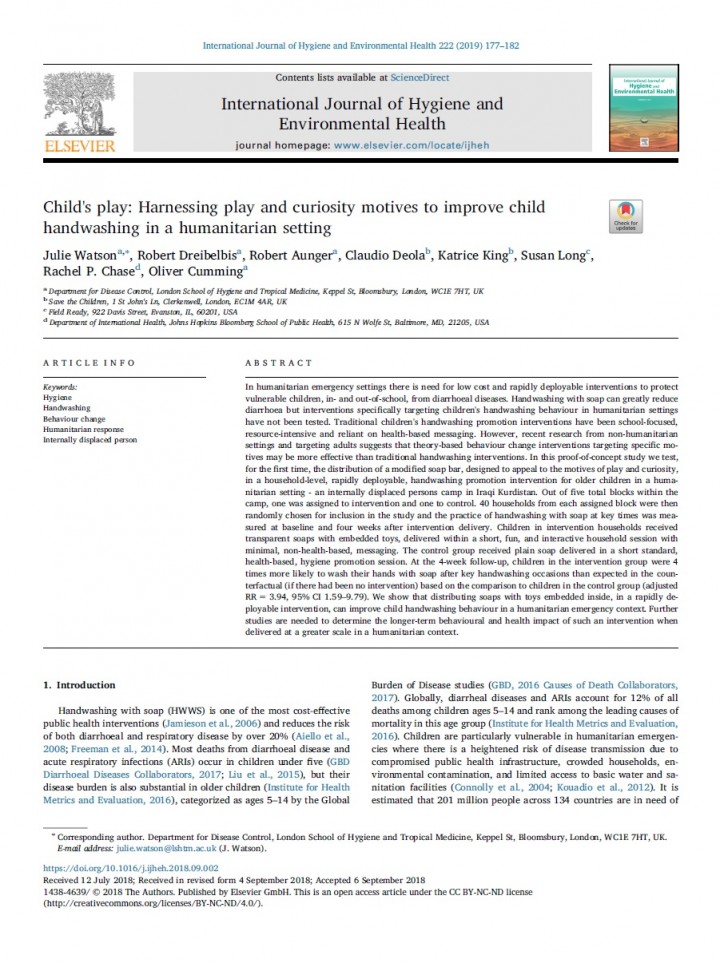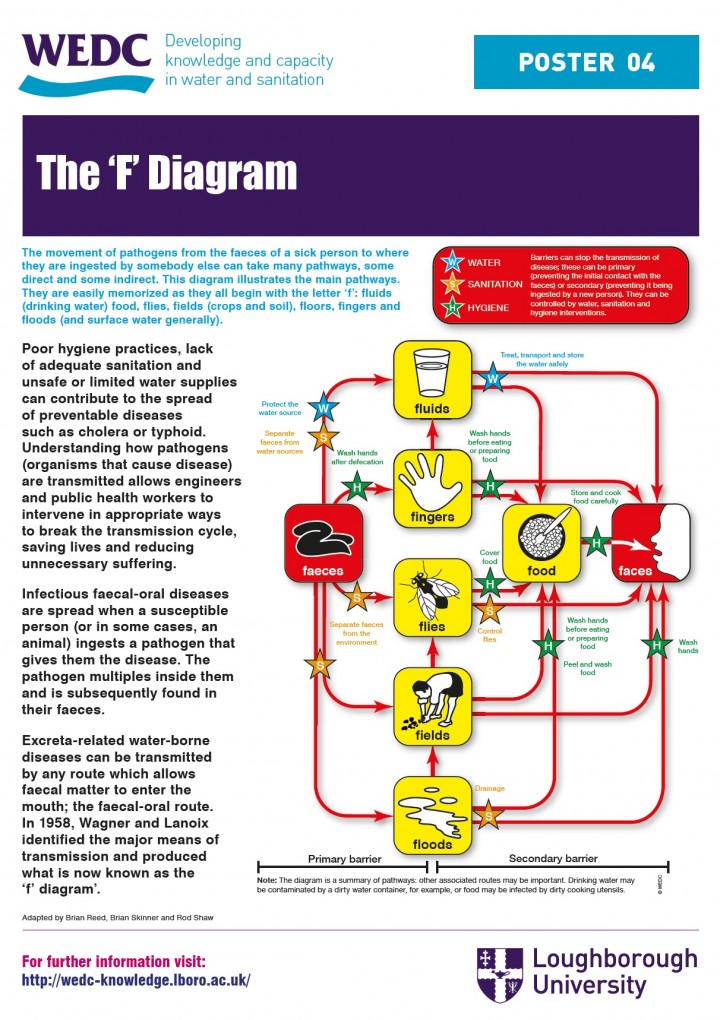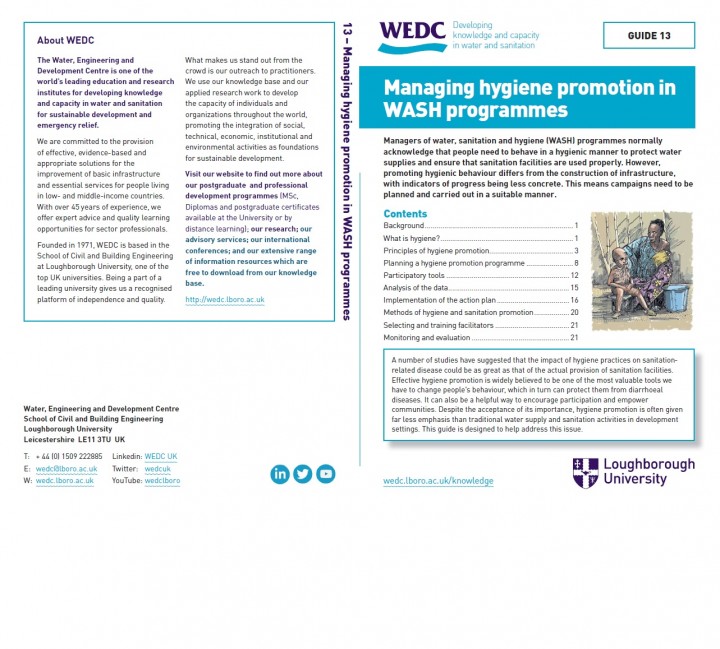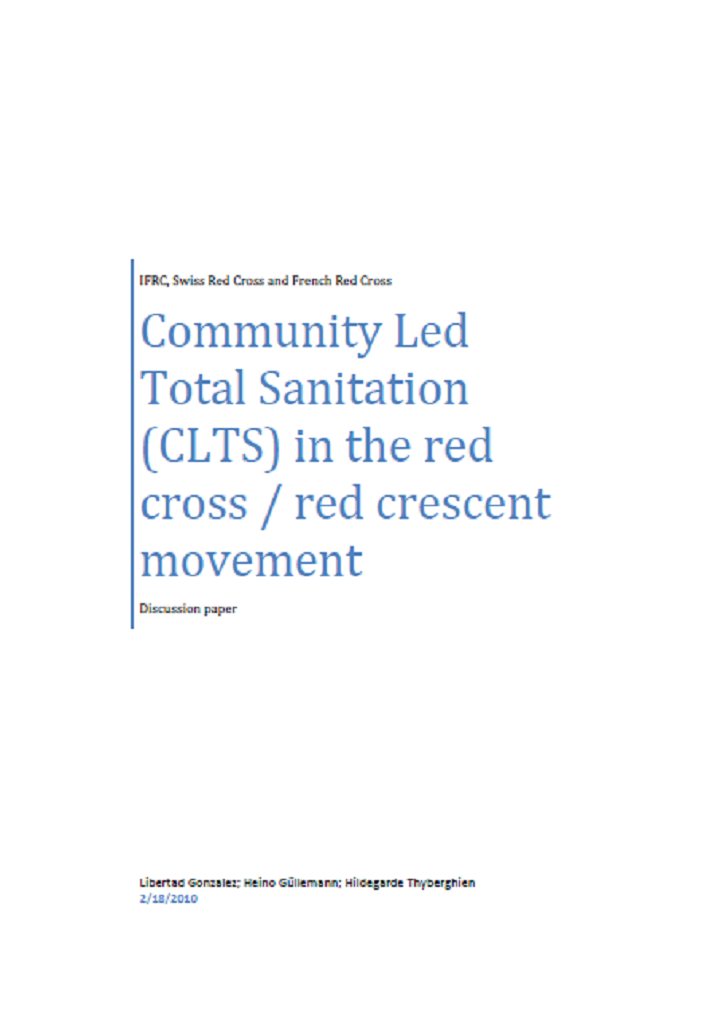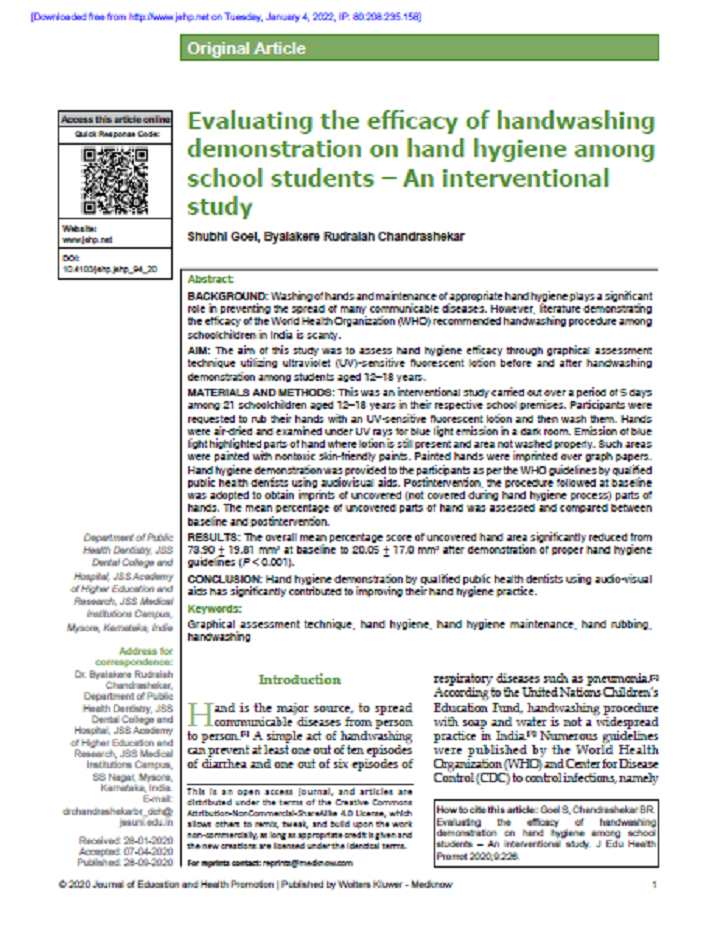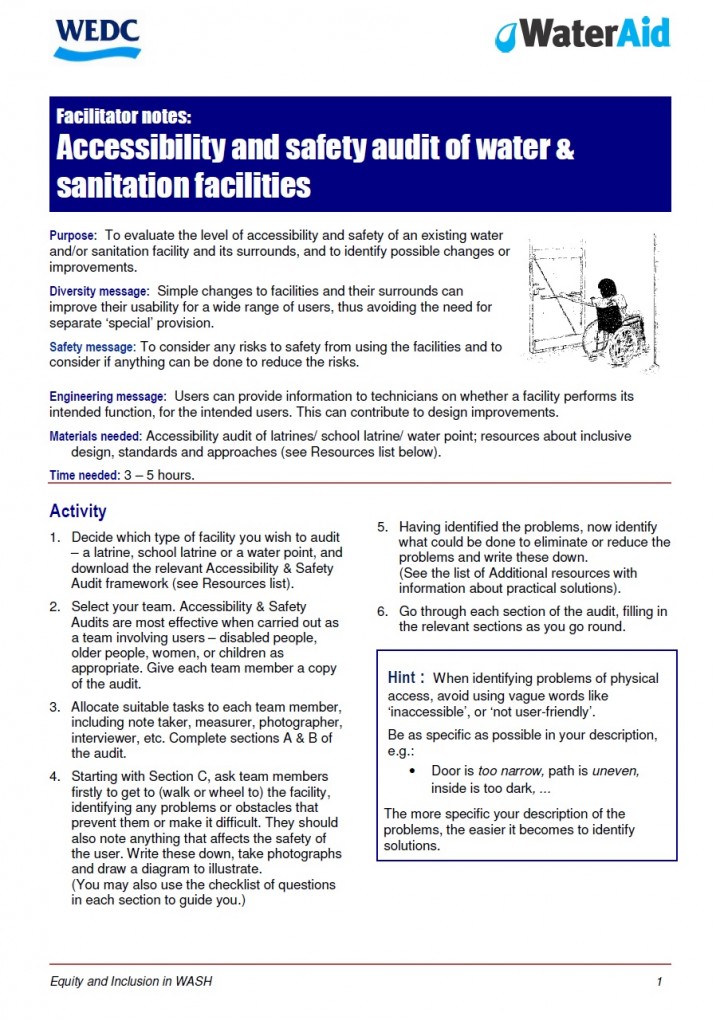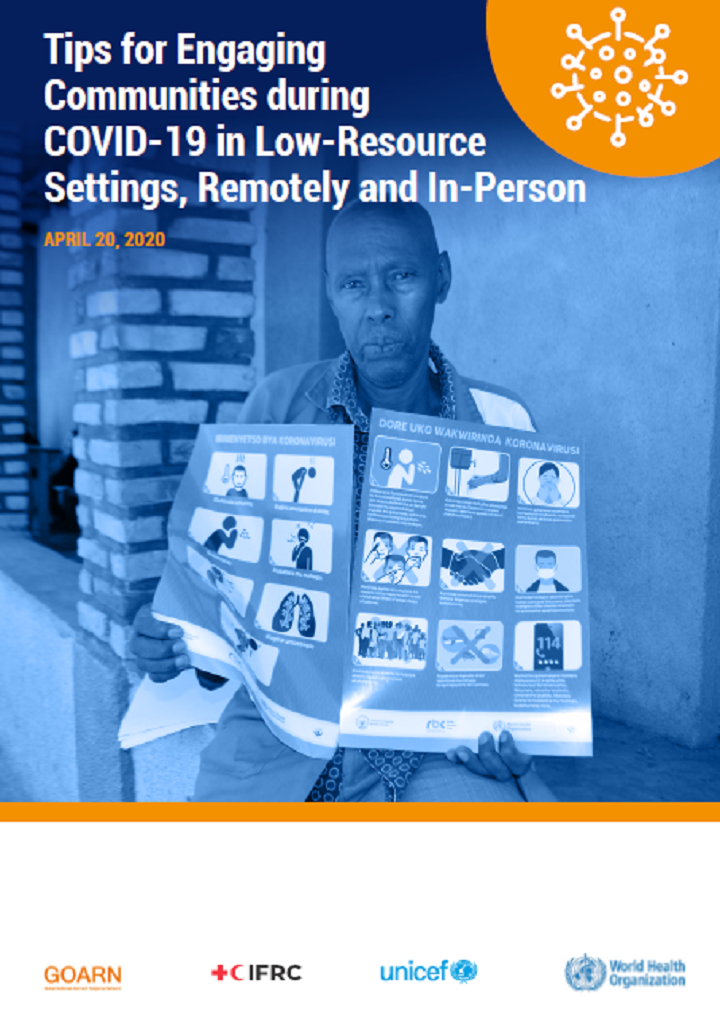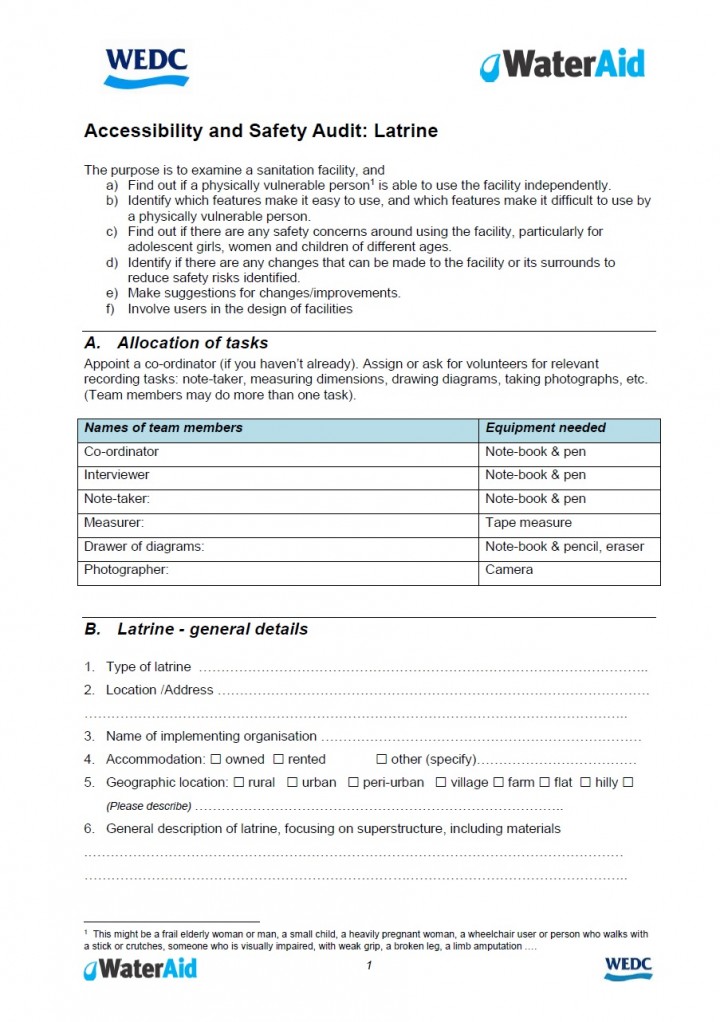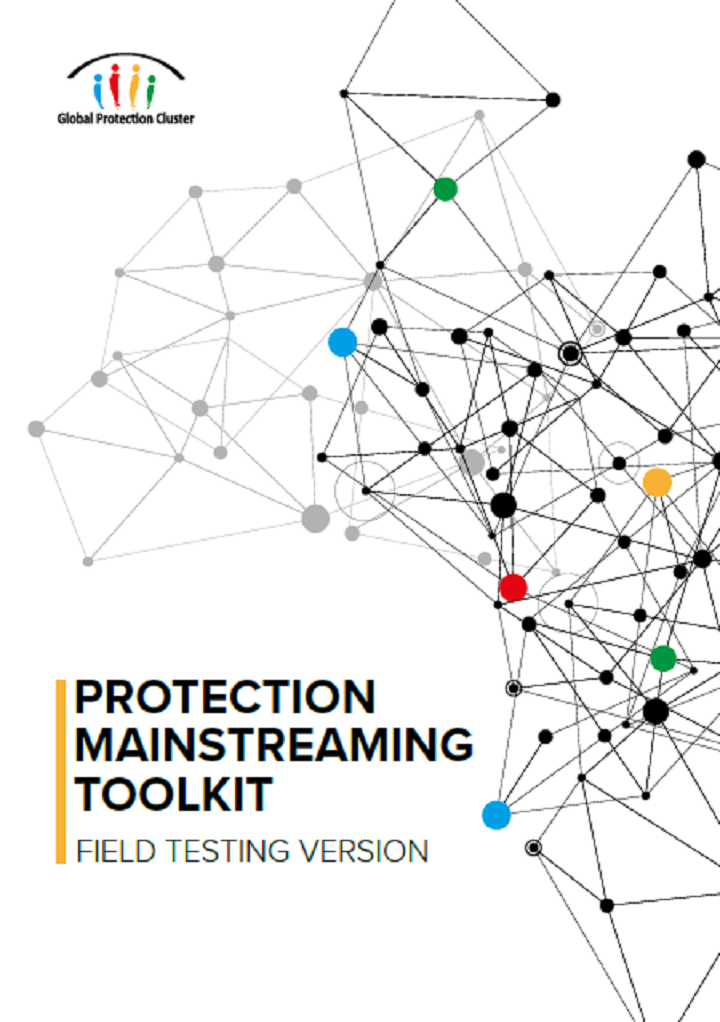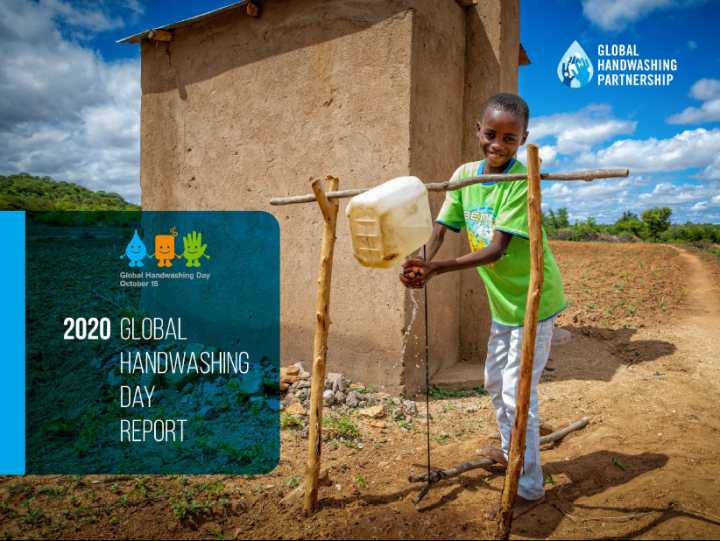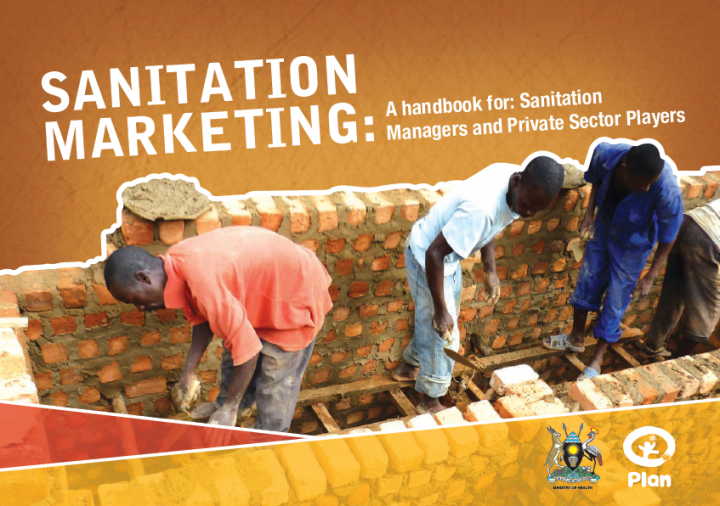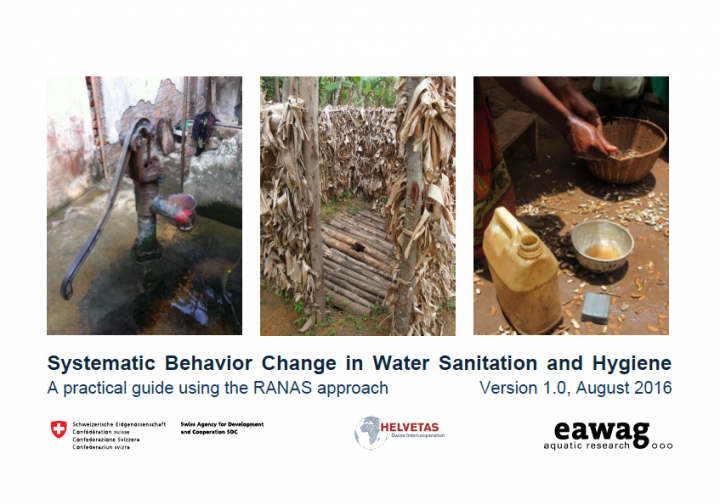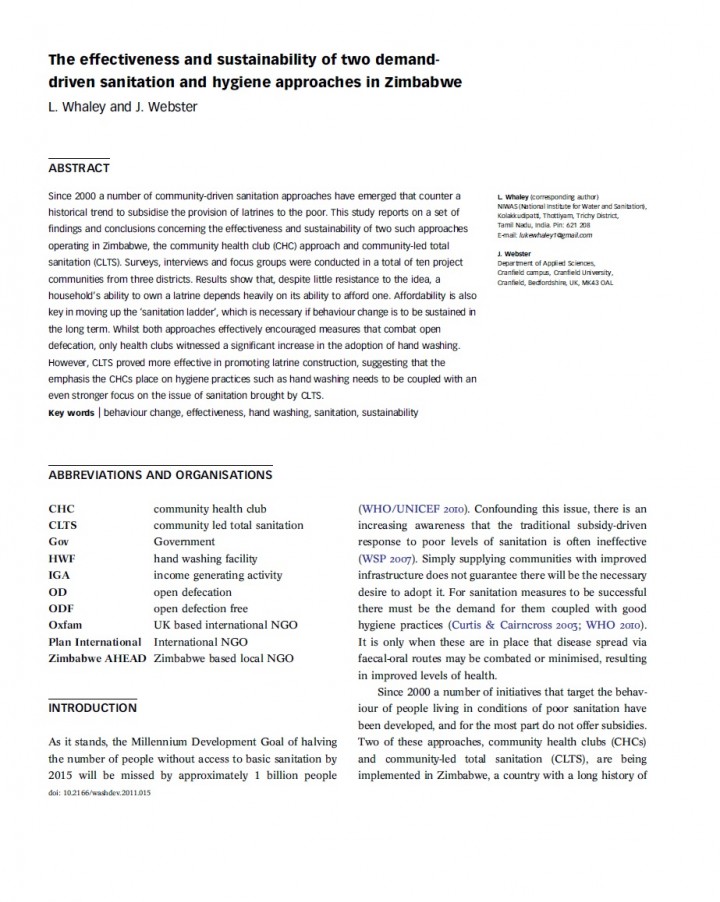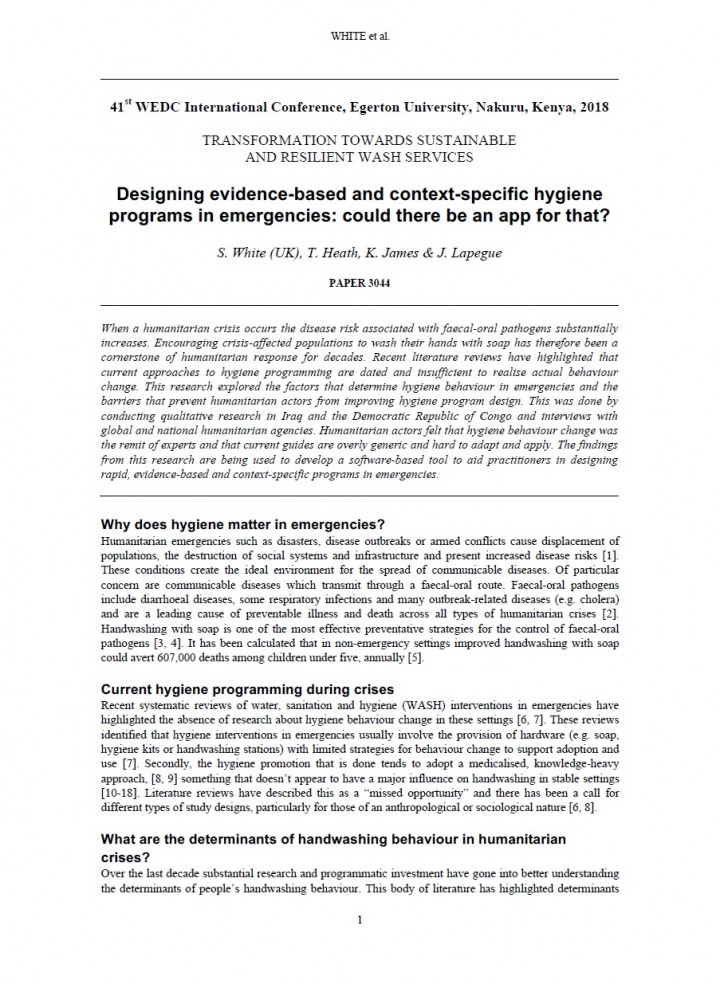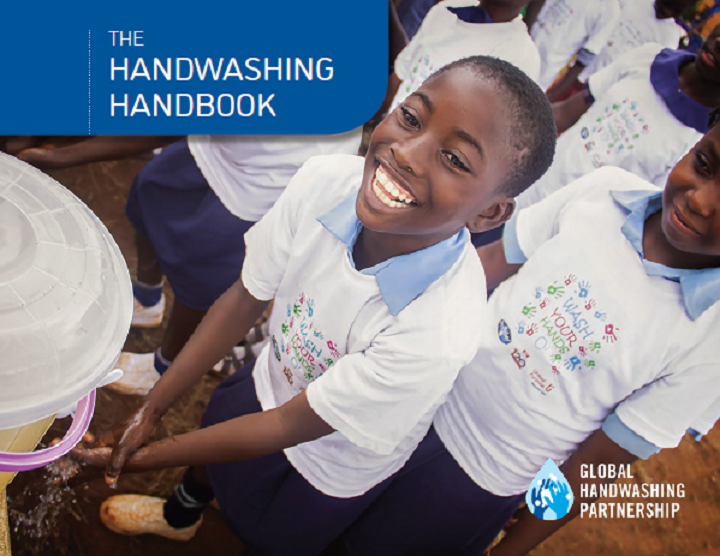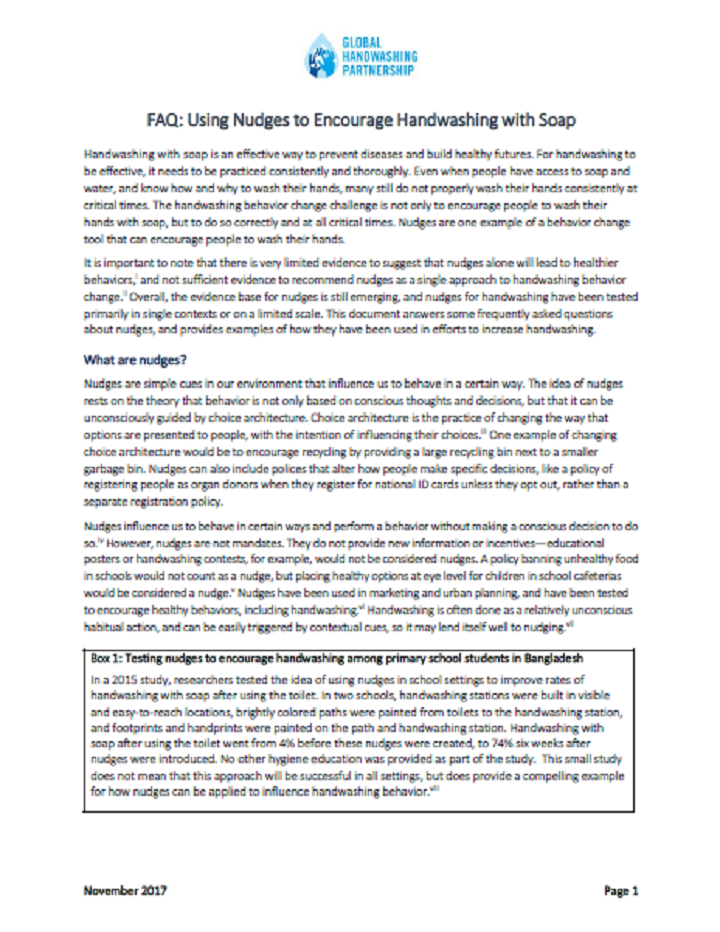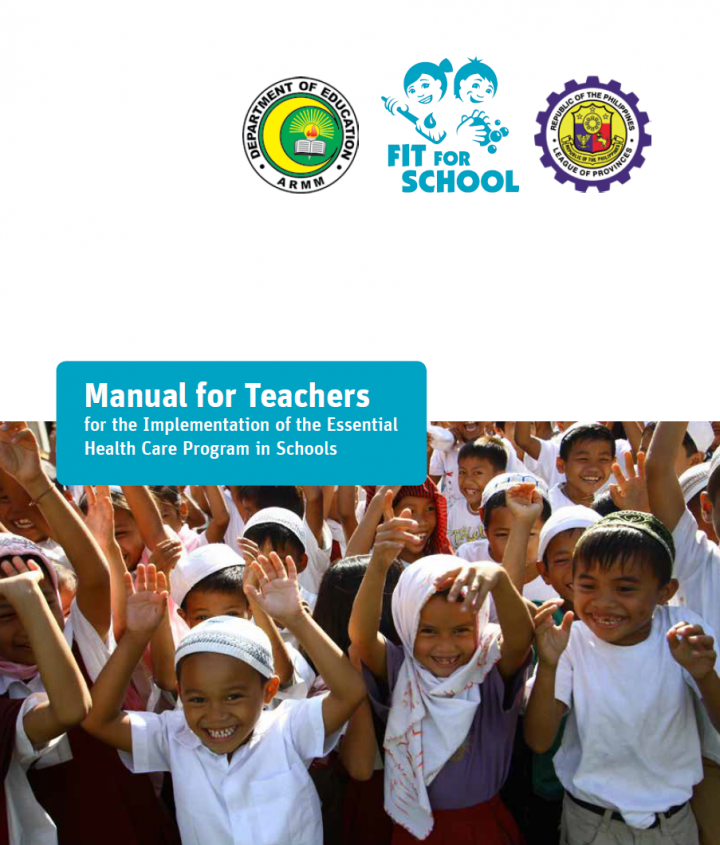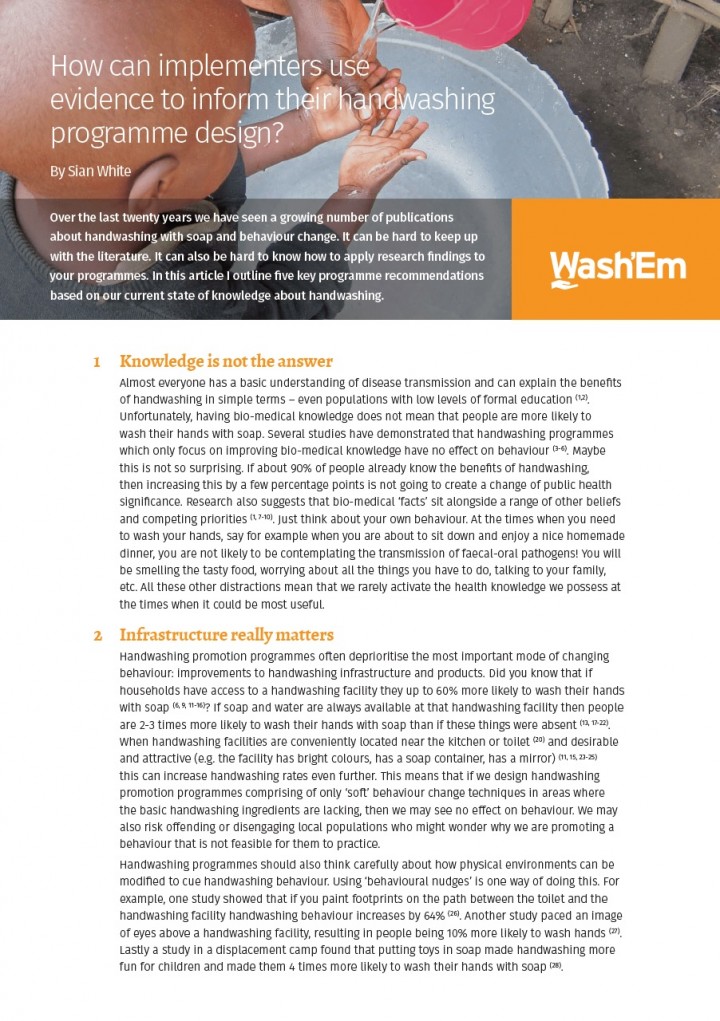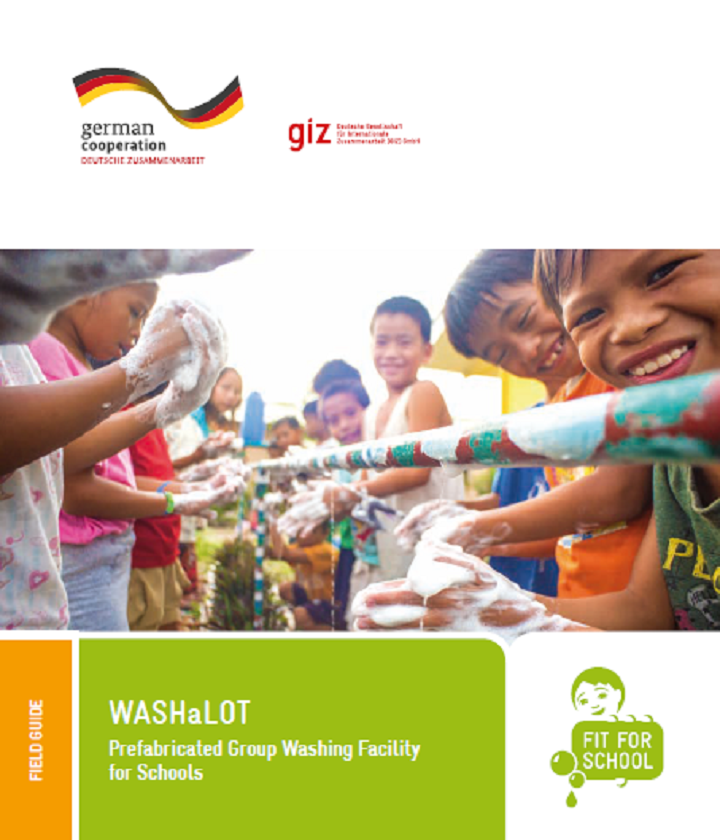Searching for information on Sanitation Workers?
The Sanitation Workers Knowledge + Learning Hub is the best source for all current news, trends, articles and updates on sanitation workers rights around the world.
Unless strategies are found to galvanise rural communities and create a demand for sanitation, we cannot achieve the United Nations Millennium Development Goal of halving the 2.4 billion people without sanitation by the year 2015. This study describes an innovative methodology used in Zimbabwe—Community Health Clubs—which significantly changed hygiene behaviour and built rural demand for …
Most countries in Africa will fall short of meeting the MDG targets for the provision of water and sanitation due to lack of financial and institutional capacity (WSP-Africa, 2006). Although safe sanitation has been found to be the most effective single intervention in reducing diarrhoea (Esrey, et al.1991), this does not necessarily mean building latrines, which can become a fly breeding ground …
Understanding the mechanisms that trigger behaviour change to overcome risky hygiene is critical to improving family health. Research in an integrated health promotion programme in 382 Community Health Clubs (CHCs) in three districts of Zimbabwe showed clearly the value members attached to gaining ‘knowledge’, which was their strongest motivation for joining CHCs. In these rural areas, where …
Background:
A cluster-Randomised Controlled Trial evaluation of the impact of the Community Health Clubs (CHCs) in the Community Based Environmental Health Promotion Programme in Rwanda in 2015 appeared to find little uptake of 7 hygiene indicators 1 year after the end of the intervention, and low impact on prevention of diarrhoea and stunting.
Methods:
Monitoring data was revisited through …
One of the worst humanitarian disasters in the world is currently taking place in Northern Uganda where 89% of the population in Gulu District now live in 33 Internally Displaced People’s (IDP) Camps, with low levels of home hygiene and only 5% sanitation coverage. A local NGO, Health Integrated Development Organization (HIDO), has started 116 Community Health Clubs in 15 IDPs camps, with …
Abstract
In humanitarian emergency settings there is need for low cost and rapidly deployable interventions to protect vulnerable children, in- and out-of-school, from diarrhoeal diseases. Handwashing with soap can greatly reduce diarrhoea but interventions specifically targeting children's handwashing behaviour in humanitarian settings have not been tested. Traditional children's handwashing …
Managers of water, sanitation and hygiene (WASH) programmes normally acknowledge that people need to behave in a hygienic manner to protect water supplies and ensure that sanitation facilities are used properly. However, promoting hygienic behaviour differs from the construction of infrastructure, with indicators of progress being less concrete. This means campaigns need to be planned and carried …
PHAST shares the same participatory learning principles as CLTS, which aim at gaining self-esteem, believing in people‟s ability to solve basic problems with their own resources. PHAST and CLTS also have in common the technical scope in their original conception, since both have been designed to focus on sanitation issues in rural communities. However, PHAST in Red Cross / Red Crescent has been …
This was an interventional study carried out over a period of 5 days among 21 schoolchildren aged 12–18 years in their respective school premises. Participants were requested to rub their hands with an UV-sensitive fluorescent lotion and then wash them. Hands were air-dried and examined under UV rays for blue light emission in a dark room. Emission of blue light highlighted parts of hand where …
Purpose: To evaluate the level of accessibility and safety of an existing water and/or sanitation facility and its surrounds, and to identify possible changes or improvements.
Diversity message: Simple changes to facilities and their surrounds can improve their usability for a wide range of users, thus avoiding the need for separate ‘special’ provision.
Safety message: To consider any risks …
This brief provides key considerations for engaging communities on COVID-19 and tips for how to engage where there are movement restrictions and physical distancing measures in place, particularly in low-resource settings. It is designed for non-governmental organizations (NGOs), UN agencies, government agencies, and other humanitarian and implementing actors working on health promotion, risk …
The purpose is to examine a sanitation facility, and
a) Find out if a physically vulnerable person1 is able to use the facility independently.
b) Identify which features make it easy to use, and which features make it difficult to use by
a physically vulnerable person.
c) Find out if there are any safety concerns around using the facility, particularly for
adolescent girls, women and …
In order to address sanitation challenges, accelerate access and sustained use of latrines coupled with good hygiene practices such as hand washing Uganda’s Ministry of Health, together with Plan Uganda, has produced handbooks on sanitation marketing. The aim is to increase awareness and harness momentum for uptake of Sanitation Marketing among stakeholders such as government at policy making …
Since 2000 a number of community-driven sanitation approaches have emerged that counter a historical trend to subsidise the provision of latrines to the poor. This study reports on a set of findings and conclusions concerning the effectiveness and sustainability of two such approaches operating in Zimbabwe, the community health club (CHC) approach and community-led total sanitation (CLTS). …
When a humanitarian crisis occurs the disease risk associated with faecal-oral pathogens substantially increases. Encouraging crisis-affected populations to wash their hands with soap has therefore been a cornerstone of humanitarian response for decades. Recent literature reviews have highlighted that current approaches to hygiene programming are dated and insufficient to realise actual behaviour …
This handbook is based on the experience of the Global Handwashing Partnership and presents best practices and new concepts to improve the uptake of handwashing. This handbook updates the approaches shared in the previous Handwashing Handbook, which was published in 2005 by the World Bank with support from the partners of the Global Public-Private Partnership for Handwashing (PPPHW), the original …
Handwashing with soap is an effective way to prevent diseases and build healthy futures. For handwashing to be effective, it needs to be practiced consistently and thoroughly. Even when people have access to soap and water, and know how and why to wash their hands, many still do not properly wash their hands consistently at critical times. The handwashing behavior change challenge is not only to …
Education and health go hand in hand. Children need to be healthy to be fit for school. Sadly, too many children in the Philippines are afflicted by everyday ailments that impact largely on their physical and mental development and limit them from getting the most from their education. The majority of Filipino children very often suffers from worm infections, severe tooth decay and from …
The simple hygiene habits of handwashing with soap and toothbrushing significantly contribute to the health and well-being of children and should be part of their education. While the idea of teaching handwashing and toothbrushing in schools has been around for decades, the actual practice of these activities has been hindered by long queues around the washing station. The concept of building …

